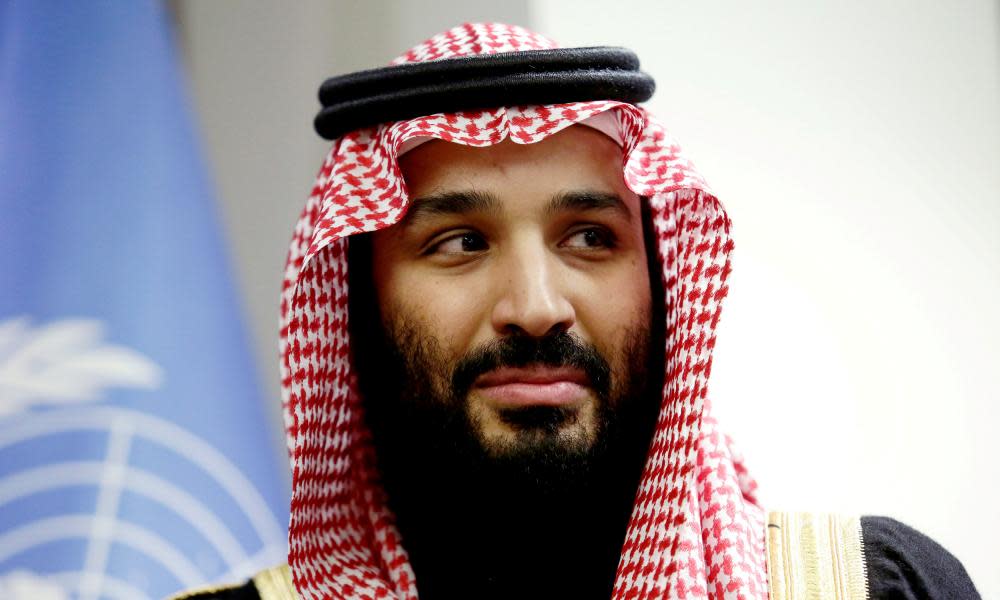US ready to move on from Khashoggi case but will Turkey play along?

“Here’s the smell of blood still. Not all the sweet perfumes of Arabia will sweeten this hand,” bewails Lady Macbeth as she confronts her guilt. And so with the leaders of the Saudi Arabian court as they seek to wash their hands of the murder of Jamal Khashoggi by pinning the blame for his murder on a gang of senior intelligence officers.
Donald Trump has said the Saudi explanation of Khashoggi’s death in the Saudi consulate in Istanbul is credible and insisted sanctions will not be countenanced. It is a step forward for the Saudi court to admit the murder took place. There had been two weeks of denial, including by Crown Prince Mohammed bin Salman himself in an interview in Bloomberg.
It will now be tempting for Saudi Arabia’s allies – above all the US – to sweep Khashoggi’s body under the carpet, recognising that Saudi Arabia is an indispensable partner in the struggle against Iran, Washington’s primary chosen adversary in the Middle East.
Nothing moves on quite like politics, and it is possible that the US president, a master of distraction, will succeed in changing the political agenda before the midterm elections, leaving the Saudi relationship and Bin Salman intact. Washington will continue to deal with the Saudi regime, but from a greater distance. The glowing orb that Trump touched in Riyadh will be put away for another day.
That assumes other key actors are willing to play along with what the former head of MI6 Sir John Sawers has in effect described as a fictional explanation, that the court’s effort to persuade Khashoggi to return to Saudi Arabia went wrong, the two sides came to blows, Khashoggi was somehow killed and a group of panicked agents tried to cover up their mistake. Few believe this explanation. The issue is whether they pretend to do so.
The key response lies with Turkey. The country’s president, Recep Tayyip Erdoğan, spoke to Bin Salman on Friday night to hear the results of the Saudi investigation and the planned response. Turkey’s own investigations are incomplete. It may yet find Khashoggi’s dismembered body, and it may yet be able to prove – possibly via audio – that his death was no accident, but a premeditated assassination. It is hard, however, to prove that Bin Salman ordered Khashoggi’s killing. All the relevant agents have been arrested in Saudi Arabia and are hardly likely to be given their day in open court to explain that they were carrying out orders from the very top.
If Bin Salman is to be ousted or weakened, it will require demands from within the royal family, the Saudi business community and possibly the religious establishment. The crown prince’s appointment to oversee the reform and modernisation of Saudi’s intelligence department, announced on Friday night does not, however, suggest he has been weakened internally.
That does not mean the episode is bereft of diplomatic consequence. Initial reaction from key players in the US Congress, such as the Republican senator Lindsay Graham, was sceptical. There will be pressure on Trump to impose sanctions and to temper US support for Saudi conduct with the war in Yemen. Trump may also find himself vulnerable if it is shown that US intelligence knew there was a threat to Khashoggi’s life and this was not relayed to him or his now grieving family.
The UK’s foreign secretary, Jeremy Hunt, has stressed that the Saudi investigation must be independent and credible, two criteria that have hardly been met so far. The wooing of and near fawning over the crown prince by the Conservative government in March looks mistaken. A long interview that the then foreign secretary Boris Johnson afforded al-Arabiya before Bin Salman’s visit revealed a craven country on its knees.
The UK is not, however, in a position to determine the pecking order in the court of Saudi Arabia, and in the past fortnight it has repeatedly stressed that the kingdom is a strategic partner. In the world of realpolitik, strategic partners look past one another’s mistakes. The crown prince may find he is not invited round for tea with the Queen again, but the multimillion-pound contracts available to UK businesses from the Saudi diversification programme will shape the British government reaction.
The UK has made much of the fact that the trade secretary, Liam Fox, will not attend next week’s business summit in Riyadh. It made less of the continued attendance of the UK ambassador to Saudi Arabia or the trade commissioner for the Middle East. In the age-old tussle between money and morality, the UK outside the EU and in search of markets has fewer options.

 Yahoo News
Yahoo News 
